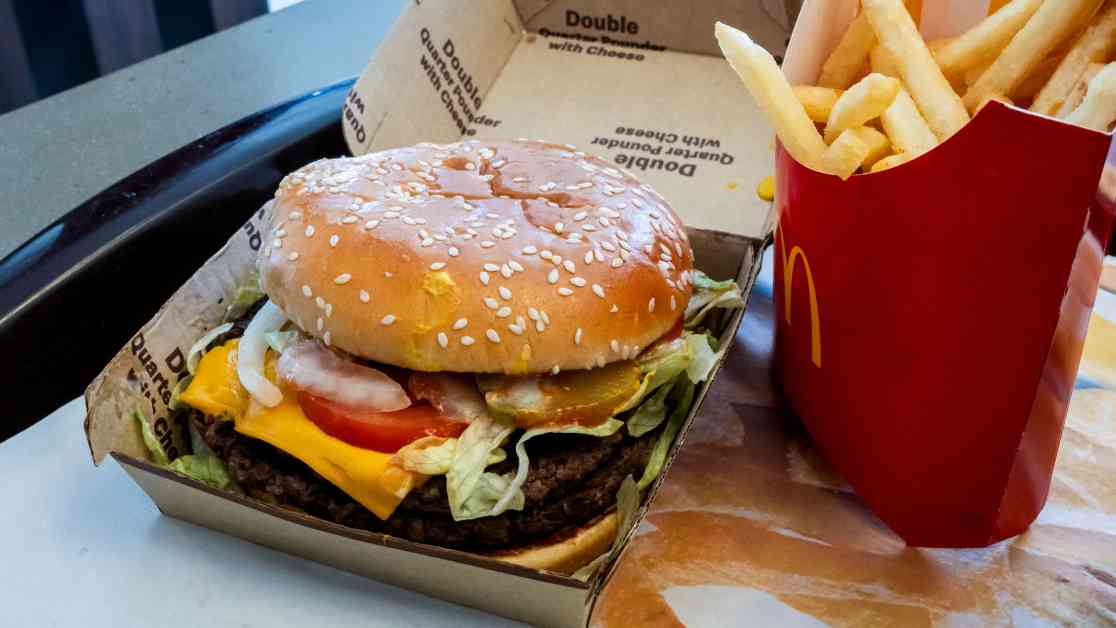McDonald’s Quarter Pounder burgers are making a comeback in about 900 restaurants this week after being removed due to an E. coli outbreak. These affected restaurants, which make up about a fifth of McDonald’s U.S. locations, will be serving Quarter Pounder burgers without slivered onions for the time being as health authorities investigate the source of the outbreak. This change will impact restaurants in various states, including Colorado, Kansas, and Wyoming.
According to Cesar Pina, McDonald’s North American chief supply chain officer, the issue seems to be isolated to a specific ingredient and region. He assured that any contaminated products related to the outbreak have been removed from the supply chain. The Colorado Department of Agriculture’s testing did not find E. coli in beef patty samples from the area, but health authorities suspect that the slivered onions used in the Quarter Pounders may be the culprit. The Food and Drug Administration is looking into whether onions from Taylor Farms are responsible, leading McDonald’s to cease using them as a supplier indefinitely.
McDonald’s is now working with its beef suppliers to create a new batch of fresh beef patties for the Quarter Pounders. Customers can expect to see the menu item return to all restaurants in the upcoming week, with the timing depending on delivery and resupply operations. The E. coli outbreak linked to McDonald’s has resulted in 75 cases across 13 states, with 22 of 61 patients requiring hospitalization and two developing a serious kidney condition. Sadly, an older adult in Colorado has passed away due to the outbreak.
McDonald’s USA President Joe Erlinger issued an apology to customers who have been affected by the outbreak, expressing regret for those who are feeling unwell, scared, or uncertain. The company is set to report its third-quarter earnings soon, with shares having declined by 7% following the E. coli incident. Despite these challenges, McDonald’s is working diligently to address the situation and ensure the safety of its customers moving forward.

















